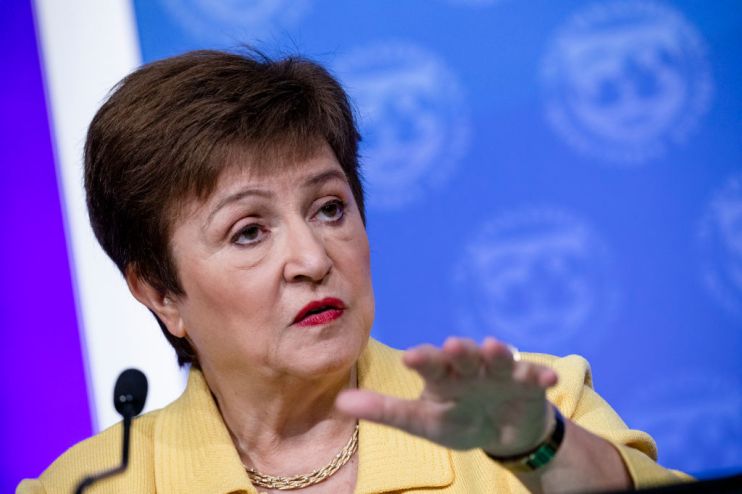IMF ready to lend up to $1 trillion in coronavirus response

The International Monetary Fund (IMF) is ready to mobilise its $1 trillion (£813bn) of lending capacity to help member countries deal with the impact of coronavirus, the organisation’s managing director Kristalina Georgieva has said.
Georgieva also said governments should ramp up spending and increase international coordination to stop the virus from wreaking long-term economic damage.
Writing in a blog on the IMF’s website, Georgieva said: “As the virus spreads, the case for a coordinated and synchronised global fiscal stimulus is becoming stronger by the hour.”
Harking back to the financial crisis, she said G20 countries deployed around two per cent of their GDP in stimulus measures in 2009 alone. She said there is “a lot more work to do”, suggesting such an effort could again be needed.
She added: “The IMF stands ready to mobilise its $1 trillion lending capacity to help our membership. As a first line of defence, the Fund can deploy its flexible and rapid-disbursing emergency response toolkit to help countries with urgent balance-of-payment needs.”
The IMF is an international organisation that serves as a lender of last resort to countries in financial difficulty. If the global economic situation worsens, it could find itself on the front line of the coronavirus response.
The virus, which originated in China in December, has now killed more than 6,500 people from almost 170,000 cases around the world.
As countries enforce strict containment policies such as quarantines and transport closures, economies are slowing dramatically.
Data out today showed factory production in China – the world’s second-biggest economy – plunged at the sharpest pace in 30 years during the first two months of the year.
Georgieva said she welcomes the moves by international central banks to boost lending swap lines to ensure those who need it have access to US dollars.
Referencing the Fed’s dramatic slashing of interest rates yesterday, she said central banks “should continue to support demand and boost confidence by easing financial conditions and ensuring the flow of credit to the real economy”.